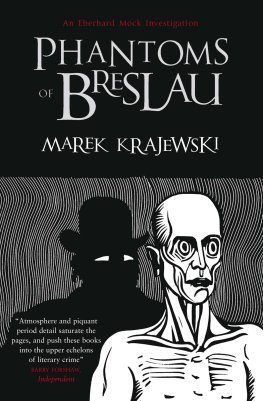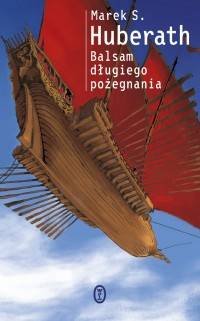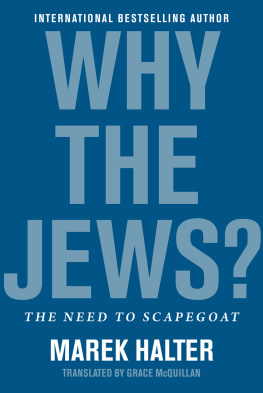Marek Krajewski - Death in Breslau
Here you can read online Marek Krajewski - Death in Breslau full text of the book (entire story) in english for free. Download pdf and epub, get meaning, cover and reviews about this ebook. genre: Detective and thriller. Description of the work, (preface) as well as reviews are available. Best literature library LitArk.com created for fans of good reading and offers a wide selection of genres:
Romance novel
Science fiction
Adventure
Detective
Science
History
Home and family
Prose
Art
Politics
Computer
Non-fiction
Religion
Business
Children
Humor
Choose a favorite category and find really read worthwhile books. Enjoy immersion in the world of imagination, feel the emotions of the characters or learn something new for yourself, make an fascinating discovery.

- Book:Death in Breslau
- Author:
- Genre:
- Rating:3 / 5
- Favourites:Add to favourites
- Your mark:
- 60
- 1
- 2
- 3
- 4
- 5
Death in Breslau: summary, description and annotation
We offer to read an annotation, description, summary or preface (depends on what the author of the book "Death in Breslau" wrote himself). If you haven't found the necessary information about the book — write in the comments, we will try to find it.
Death in Breslau — read online for free the complete book (whole text) full work
Below is the text of the book, divided by pages. System saving the place of the last page read, allows you to conveniently read the book "Death in Breslau" online for free, without having to search again every time where you left off. Put a bookmark, and you can go to the page where you finished reading at any time.
Font size:
Interval:
Bookmark:
Marek Krajewski
Death in Breslau
All-seeing Time hath caught
Guilt, and to justice brought
The son and sire commingled in one bed
Oedipus the King, Sophocles (translated F. Storr)I
DRESDEN, MONDAY, JULY 17TH, 1950
FIVE OCLOCK IN THE AFTERNOON
The July heat was unbearable. Director Ernst Bennert of the Psychiatric Hospital slid his hand over his enormous bald skull. He examined his wet palm with care like a palmist. The mound of Venus was sticky with sweat, tiny drops glistening in the life line. Two flies dug convulsively into a stain left by a glass of sweet tea on the oilcloth. The light of a merciless, setting sun flooded the window of his consulting room.
The heat did not seem to trouble the man with a shining black mane who was also sitting there. He turned his chubby face adorned with a moustache and sprouting stubble to the sun with evident pleasure. He rubbed his cheek with a hand on which flexed the tattoo of a scorpion. The man looked at Bennert. His eyes, dimmed by the suns glare, became suddenly attentive.
We both know, doctor, he said with a distinct foreign accent, that you cannot refuse the institution I represent.
Bennert did know. He glanced out of the window and, instead of the once splendid but now ruined tenement house on the corner, saw the icebound panorama of Siberia, frozen rivers, heaps of snow and human limbs protruding from beneath them. He saw a shed in which skeletons in torn uniforms fought to get to the iron stove with its smouldering fire. One of them reminded Bennert of the clinics previous head, Doctor Steinbrunn, who, six months earlier, had not agreed to the Stasi interrogating a certain patient.
He rubbed his eyes, rose and leaned over the window sill: the sight was familiar a young mother scolding a disobedient child, a whining lorry, loaded with bricks.
Very well, Major Mahmadov. I will let you into the ward myself, and you can question the patient. Nobody will see you.
Just what I mean. See you at midnight then, Mahmadov brushed the fragments of tobacco from his moustache. He got up and smoothed his trousers. As he was pressing down the doorknob, he heard a loud thump and turned abruptly. Bennert smiled foolishly, holding a rolled copy of Neues Deutschland. Two dead flies lay flattened on the oilcloth.
DRESDEN, THAT SAME JULY 17TH, 1950
MIDNIGHT
The patient Herbert Anwaldt had survived the house of torture, as he called the psychiatric clinic on Marien-Allee in Dresden, for already five years, thanks to his imagination. Imagination was a filter for wondrous transformations; the nurses jabs and punches became gentle caresses, the stench of faeces became the scent of a spring garden, the cries of the sick became baroque cantatas and the shabby panelling frescoes by Giotto. Imagination obeyed him. After years of practice, he had managed to tame it to such an extent that he had entirely extinguished in himself something, for example, which would otherwise not have allowed him to survive incarceration: desire for a womans body. He did not have to extinguish the fire in his loins like a sage from the Old Testament that flame had long ago gone out.
Imagination did, however, betray him when he saw small, busy insects scuttling across the room. Their yellowish-brown abdomens flitting in and out of the gaps between the floorboards, their flickering antennae sticking out from behind the washbasin, the individual specimen crawling on to his eiderdown: a pregnant female dragging a pale cocoon, or a handsome male holding its body high on quick limbs, or the helpless young tracing circles with thin feelers all this would lead to Anwaldts brain being shaken by an electrical charge of neurons. The whole of him would curl up painfully, flickering feelers would burrow into his skin and he would be tickled, in his imagination, by thousands of limbs. He would then fall into a fury and was a potential danger to other patients, especially since the occasion on which he had discovered that some of them were catching insects, putting them into matchboxes and hiding them in his bed. Only the smell of insecticide would calm his jittering nerves. The matter could have been dealt with by transferring the sick man to another hospital one less infested by cockroaches in another town, but here unanticipated, bureaucratic obstacles would present themselves and successive heads of clinic would forsake the idea. Doctor Bennert had restricted himself to transferring Anwaldt to a private room disinfected somewhat more frequently. In periods preceding the swarming cockroaches, the patient Anwaldt would be calm and occupied himself for the most part by studying Semitic languages.
This is what he was doing when the nurse Jurgen Kopp was on his rounds. Even though Director Bennert had unexpectedly relieved him of the days duty, Kopp had no intention of leaving the hospital. He closed the door of Anwaldts room and went to a department in the next-door block. There he sat down at a table with two colleagues, Frank and Vogel, and started to deal cards. Skat was a passion shared by all the lower ranks of the hospital staff. Kopp bid a spades and turned out a jack of clubs to draw trumps. Before he could take the trick, however, they heard an inhuman cry from across the dark courtyard.
Whos that yelling his head off? wondered Vogel.
Anwaldt. His lights just gone on, Kopp laughed. Seen another cockroach, I expect.
Kopp was right in part. It was Anwaldt shouting. But not because of a cockroach. Along the floor of his room, comically twitching their abdomens, paraded four handsome, black, desert scorpions.
BRESLAU, SATURDAY, MAY 13TH, 1933
ONE OCLOCK IN THE MORNING
Madame le Goef, a Hungarian with an invented French name, knew how to solicit clients. She did not spend a fenig on announcements in the press or on advertisements but acted directly. Trusting her unfailing intuition, she noted about a hundred names from the Breslau telephone directory and the directory of addresses. Next a certain sumptuous prostitute with extensive connections vetted the list and it turned out that most of the names belonged to wealthy men. Apart from that, Madame drew up a list both of doctors in Breslau and of lecturers at the university and the engineering college. She sent all of these men discreet notes in plain-looking envelopes, advising them that a new club, where the most demanding of gentlemen could satisfy their desires, had been opened. A second wave of advertisements infiltrated mens clubs, steam baths, coffee houses and theatres varietes. Amply rewarded cloakroom assistants and porters without the knowledge of the pimps by whom they were already paid for procuring girls slipped scented cards illustrated with an appetizing Venus in black stockings and a top hat, into their guests hands or overcoats.
In spite of the pious indignation of the press and two court cases, Madame le Goefs club became famous. Its clients were served in various ways by the charms of thirty girls and two young men.
Nor was there any shortage of artistic performances in the salon. Artistes were recruited from among the salon staff or as was more often the case generously remunerated guest performances were given by dancers from the Imperial Cabaret or some other small theatre. Two evenings a week were designated in Oriental style (with dances not only of the belly by several Egyptians who were otherwise employed in a cabaret), two in Classical style (bacchanalia), one in bawdy German (Heidi in lace drawers), and one was set aside for special guests, who had hired the whole club for discreet rendez-vous of their own. On Mondays the establishment was closed. Before long, telephone reservations were introduced and the Prussian manor called the little Lohe manor in Opperau, just outside Breslau, become famous throughout the city. The capital outlay was swiftly recovered, the more so as Madame was not the only investor. The lions share of expenses was borne by the Police Praesidium of Breslau. This institutions costs were repaid not only in material form. And so everybody was happy, most of all the occasional and regular clients. The number of the latter kept on growing. Because where else could the Professor of Oriental Studies, Otto Andreae armed with a
Font size:
Interval:
Bookmark:
Similar books «Death in Breslau»
Look at similar books to Death in Breslau. We have selected literature similar in name and meaning in the hope of providing readers with more options to find new, interesting, not yet read works.
Discussion, reviews of the book Death in Breslau and just readers' own opinions. Leave your comments, write what you think about the work, its meaning or the main characters. Specify what exactly you liked and what you didn't like, and why you think so.








